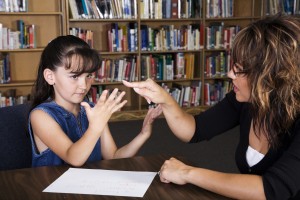“So whatever you wish that others would do to you, do also to them, for this is the Law and the Prophets.” – Matthew 7:12
This famous verse and mandate from Jesus in the Gospels, is one of the most famous lines in the entire Bible. Most people, even non-Christians, recognize it and can recite it. But, does that mean that many people are actually living by this preaching?
A quick look across your community, and this nation, will show that for the most part we, as a society, fall far short of Jesus’ words. There are many sociological reasons for this, one being that in today’s suburbs neighbors do not typically interact or spend much time together. Tw0 thousand and fifteen is clearly not the same as the 1950’s or 1960’s, or the 70’s. Thus, if we do not interact much we will not know if someone needs assistance.
Artie Leary, of Massachusetts, saw there was a problem that needed to be solved. His website, www.currencyofkindness.org, has just launched.
“We started Currency of Kindness because the sense of community that we grew up with has diminished. When we were kids we would always see neighbors stopping by to help out or return a tool, or lend a hand. Today with all the technology that kids use, and the things that keep us busy, that sense of community has suffered. We think we can restore some of that lost community spirit.”
Leary, the group’s co-founder, is a Catholic but notes that the website and organization/portal is not necessarily religious in nature or connected to any specific church.
“We want people who may not have the funds or support they need to be able to get things done without having to pay money. Our hope is that people will use this tool to get things done and then pay it forward which will in turn rebuild the community spirit.”
Ask anyone who has volunteered formally, or just helped out a friend or neighbor in need, and it’s evident that often times the person who gains the most is the person who gives. This is truly part of the Gospel message. Notes Leary, “I know when I help someone with a need that I feel pride and comfort from knowing I could help. I think people will get that same feeling when taking the first step simply registering on our site. I also like to include my two girls in these efforts so that they can grow up with the same dedication to helping others that we’re trying to promote.”
Currency of Kindness is now focusing on building a grassroots database in Massachusetts, but the hope is for a wider audience and group. “In 5 years we would like to see a large population of the country using our site as a portal for community service. We would like to see town/city governments posting projects, police and fire departments requesting residents get involved and the schools using our system to track community service requirements for graduation.”
Leary does mention that one of the key benefactors of this service and idea are churches–who often times do not have the funds needed to complete the tasks on their plate. Leary will be visiting churches and other worship halls locally in the coming months.
No money is transferred to or from anyone on the website, and Leary is receiving no funds personally for his efforts. That attitude is compatible with the spirit that guides Currency of Kindness. It is free to register as a volunteer, and also as a person with a project who needs help.
Will you take a step today to help others around you? Will you spread the “good news”? How do you become aware of and meet the needs of those around you?
 The Bottom Line, Ministries Christian News, Articles, & Poetry
The Bottom Line, Ministries Christian News, Articles, & Poetry 




